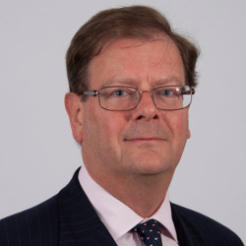The working party compiled by NCVO to create guidance on setting pay for senior charity executives should not be comprised of board chairs but of donors and service commissioners, charity accountant Nick Brooks has said.
Brooks, partner at Kingston Smith and chair of the ICAEW charity and voluntary sector group, told civilsociety.co.uk he couldn’t understand why NCVO had decided that chairs were the best people to advise on the guidance, when it is board members who already set the salaries that have been criticised recently in the right-wing press.
“That working group should be made up of stakeholders – donors, commissioners, philanthropists,” he said. “If they think the pay is ok then it doesn’t matter a toss what other people thing, because they’ll go on giving – but if they think it’s too high then it doesn’t matter what anybody else thinks, it is too high.
“It’s the wrong emphasis – it needs to be almost taken out of the charity sector to decide. Once again the sector is guilty of navel-gazing, inward-looking and kneejerk reaction.”
Brooks said that if the salaries story had appeared in the media ten years ago, it would have been the Charity Commission that tackled it and decided how to respond. But nowadays the regulator is “under fire, on the back foot and doing all they can really to survive – they’re not the right people to be looking at this”.
He added that Acevo was not the right body to do it either, because it represents the chief executives and so can’t be independent.
“Why doesn’t anybody ever go and ask the people that give the money, or the beneficiaries, the people that get the money?
“Those that give charities money and contracts do so with a lot of trust. If the response is that the salaries are deemed to be too high then the sector needs to deal with that.”
'Transparency champion needed'
Brooks suggested the charity sector needed a “transparency champion” to promote its working practices and defend it against attacks from the media.
“If the public understood a bit more about what charities did then it might be better, we wouldn’t get all these knee-jerk reactions,” he said.
“The sector needs its own PR, it needs an apolitical organisation that can put the other side of the argument on these occasions. It’s time the sector stood up for itself and was not afraid to tell everybody ‘this is how it is’ – and proactively, rather than kneejerk reactions to criticisms.
“We owe it to the rank and file who work selflessly for the people and projects they passionately care about and those millions of beneficiaries for whom the sector acts.”
Baroness Armstrong: it's easy to have a go at the sector
Elsewhere, Labour peer Baroness Armstrong has said the charity sector needs to be prepared to defend “good pay” for its employees.
Speaking at the Acevo’s Women CEO’s conference, Baroness Armstrong said: “I’m not prepared to see the charity sector dumbed-down. There is this glib idea that it is easy to have a go at the sector as it does not have the power to fight back. You must find that power.”
Earlier in her speech she said she had been “mortified” by the charity pay scandal. “If the Charity Commission chair had still been Dame Suzi Leather she would have dealt with it differently,” she said.
Additional reporting by Vibeka Mair









